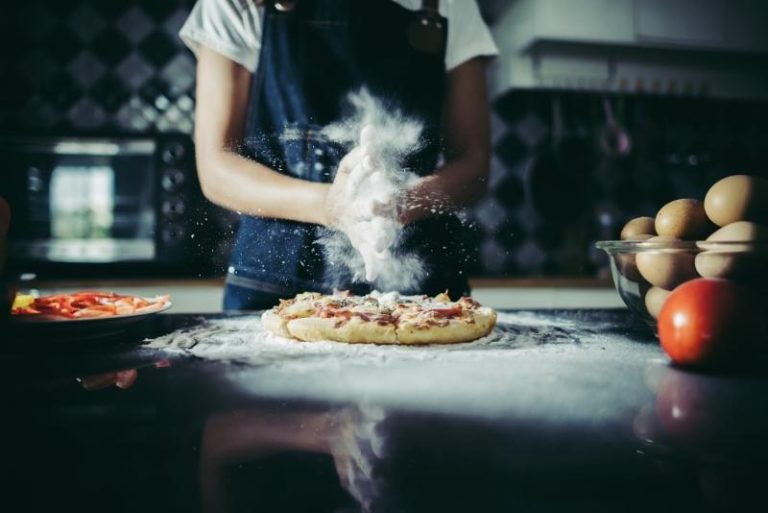Whether you’re considering a side hustle, or an essential ‘pivot’ following the pandemic, the UK’s hospitality industry is a significant area of entrepreneurship!
The last two years has seen a huge rise in takeaway deliveries, propelled by the need to adapt to change, with many using their home, or shared space, to cook from – as a sole or secondary gig income. This has also propelled the number of delivery drivers using their work or personal vehicles. We explore the ‘dark kitchen’ phenomena.
What is a dark kitchen?
The name sounds far more sinister than it is. Think Deliveroo, Uber Eats, Just Eat and direct-to-kitchen apps which bring us the joy of new food which we may not have accessed otherwise – and a new, highly functional way to run a business by those in, or breaking into, the hospitality industry!
The dark kitchen, also known as a ‘ghost’, ‘cloud’ or ‘virtual’ kitchen continues to grow in popularity.
As the food is prepared only for delivery, these kitchens are tucked away, sometimes in windowless workspaces and away from consumers eyes, hence the term ‘dark’. It also refers to underutilised restaurant kitchens, who rent out space to small businesses providing online deliveries (not too different from the ‘hire a desk’ office model). One outlet hosting a number of brands is generally referred to as a ‘cloud kitchen’ where one or several chefs could be cooking for a number of different brands.
Orders are placed online, usually via an app from brands like Uber Eats and Just Eat, who can provide the tech support, from app to tablets (plus the marketing and advertising), leaving new businesses to focus on setting up a separate kitchen to generate takeaway income.
These ‘dark kitchens’ can be managed by one or several cooks or chefs, with self-employed delivery drivers collecting and delivering the goods direct to front door. It’s a great way to start or expand a business with fewer overheads – as kitchens can be smaller spaces, even shared, with all equipment provided as part of the lease. There is also no need for front-of-house or waiting staff to become a success story, in fact there is no need for a physical premises for diners at all.
It’s a fast-growing business model. Deloitte estimates that since the start of the pandemic, London restaurants are now selling around 1 million meals per week via apps (over 600,000 through restaurants, and over 300,000 independent), and those that do use third-party apps remain better supported to deliver, and to make a healthy profit.
Start a “takeaway near me”
Although many relate the pivot towards the dark kitchen to COVID, Deliveroo has been working on this type of app-savvy business model since 2017. The ‘convenience is king’ approach has supported many hospitality businesses, particularly the smaller independents, who can now compete against the bigger brands in terms of quality, and diversity of food available – and of course the pandemic jet-propelled the need!
How to insure a takeaway kitchen?
Whether within a shipping container, prefab, shared restaurant kitchen or industrial estate, these kitchens still need to be vetted to meet the strict hygiene standards of a restaurant to meet Food Standards Agency standards. They also need to be insured.
Here’s the catch: The insurance risk for these businesses falls outside of the ‘normal’ restaurant or cafe insurance schemes.
Howden’s Deniz Guner, Howden Bromley’s Commercial Manager, explores:
“It’s clear that the direction of the hospitality industry has changed, and policies for ‘dark kitchens’ is certainly something new. The biggest difference in cover for this business model is the variables.
“These spaces can be shared, or fully kitted out as part of a lease, so certain overheads don’t need to be insured by the user. Some bring their own food each day so stock cover may not be needed should the fridge break down overnight, for example. There is also no footfall, even delivery drivers wait outside of the premises, which further reduces risk.
“Variables like this could go some way to reduce premiums, when compared to the typical restaurant-type policies which take into account footfall, stock and how many covers among other factors. The tricky part is that there is no ‘box’ for these types of businesses to sit in and there are many insurers unable, or unwilling, to cover them.
“We’re keen to support these businesses, after all, many kept us going throughout the pandemic when the fridge was empty – and many are smaller, local businesses who have been through a lot over the last two years.
“There are a number of insurances these business owners should consider:
- Public liability – essential in the case of food poisoning or accidental injury.
- Employers liability – for those with staff.
- Assets insurance – if ownership of equipment, or to insure stock.
- Business interruption insurance – if there is a fire during a 12 month lease, how would the owners continue with the business? This type of insurance could cover loss of income for up to 12 months.
“But it doesn’t stop there. Self-employed delivery drivers also need insurance – they would need to check that their bike, motorcycle or car insurance is insured for business use – for delivery, in particular.
“Another thing to consider is, if boiling hot coffee is delivered to your door and the delivery driver accidently spills the coffee and burns you, or stains your carpet, who would be liable? That’s why it’s important that drivers hold the right level of public liability insurance, as they will not be covered by the kitchen.”
Howden is more than happy to support independent kitchens in making the most of this boom, and would encourage anyone with questions to pick up the phone and contact Deniz Guner at our Bromley branch, or make a quick call to your local Commercial team.

